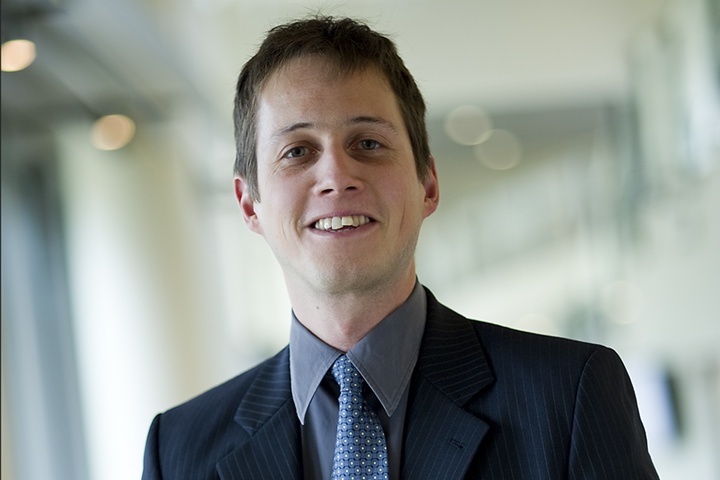During his youth in Freiburg, Germany, family meals could occasion lively debate, recalls Jens Hainmueller, a recently tenured associate professor of political science. His parents, deeply influenced by the 1970s student movements, believed in “making politics,” while Hainmueller was “more interested in analyzing political dynamics, and what shapes actual policies," he says. When he began his studies at the University of Tubingen in political science, economics and law, he gravitated decisively “toward a more systematic approach that emphasized data collection,” which his parents characterized as "bean counting." Hainmueller recalls, “They wanted to get at power struggles; I was more quantitatively inclined.”
Yet in some ways, Hainmueller’s evolution as a political scientist can be seen as a long-term project to tie together qualitative and quantitative ways of thinking about politics and society. While he has always been “excited about using math tools to learn about the world,” Hainmueller has also been drawn to social and economic problems. His interest in immigration emerged during a civil service stint following high school. While driving an ambulance through the old steel towns of the Ruhr, Hainmueller witnessed firsthand the struggles of minority Turkish communities. “That sparked my interest in trying to find the sources of discrimination against types of immigrants, and how they integrate into society.”
- Video: Meet Jens Hainmueller
Beginning at Harvard, where he received his PhD, and now at MIT, Hainmueller has been developing a data-based take on immigration and other issues. One recent project examined data from naturalization applications of immigrants in Switzerland, and found routine discrimination against Turkish and Yugoslavian applicants in a large number of Swiss municipalities. This work could be used, Hainmueller suggests, to reform the naturalization system.
He is also exploring different dimensions of the immigration problem in the United States, where debate rages around the appropriate path to citizenship. Hainmueller and colleagues are trying to find what drives American attitudes toward immigration. His studies have demonstrated that Americans are less influenced by economically motivated fears of immigration, particularly the notion that immigrants compete with current U.S. residents in the labor market, than by “more culturally motivated sentiments.” To learn more about these sentiments, his latest investigation puts people “in the shoes of immigration officials and lets them decide which attributes, such as education or country of origin, are more important.”
The statistical methods Hainmueller employs are often indispensable in posing and answering causal questions. His dissertation paper explored a topic that often provokes heated speculation: whether politicians gain financially as a result of serving in office. Drawing on data from probate records of 600 British politicians who ran for Parliament between 1950 and 1970, Hainmueller conducted an observational study to determine if political office actually paved a path to wealth. Using a quantitative method called regression discontinuity design, he ruled out other confounding factors that could explain Parliament members’ enrichment, and was able to show that serving in Parliament doubled the wealth of Tory pols, but had zero effect on Labor MPs.
In the United States, where comparable records for congressmen do not exist, Hainmueller instead focused on stock portfolios to see whether politicians might be using privileged information to play the stock market. “This is an incredibly important topic,” says Hainmueller, “since voters see rampant corruption among politicians.” But the assumption that elected officials “are all self-serving crooks” turns out to be misplaced, he says. His study of congressional stock market investments from 2004 to 2008 shows actual underperformance of the market by around 2 percent a year. Nevertheless, if only to improve their credibility with the public, Hainmueller recommends politicians “put their money into blind trusts.”
Hainmueller has also run statistical studies on the impact of antismoking programs, and will soon apply his methodology to the benefits of fair trade certification for cocoa farmers in Ghana. Whatever the focus, his goal is to cut through opinion and hyperbole with evidence that might meaningfully guide social and economic policies. “I don’t think we will change the world, but make small, incremental steps to understanding important public policy issues,” he says.
